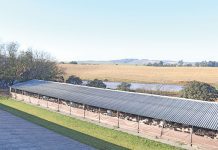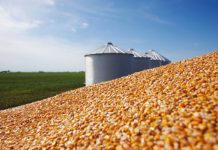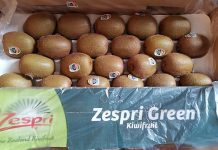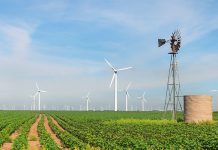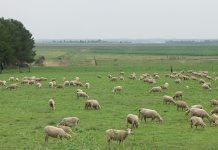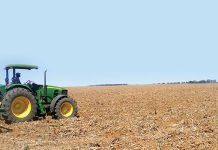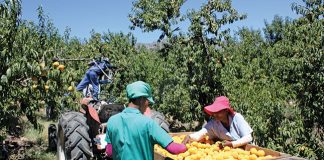Farmers can claim a rebate of 80% on eligible diesel costs. The current rebate is R1,58/l. If this is the first time you realise you can claim such a rebate, you may claim two years back. But the key word is ‘eligible’. You need to know exactly what you can claim for and you need a good record-keeping system to prove you’re compliant with the SARS regulations. SARS has recently embarked on a drive to audit rebate claims.
In 2001 it was decided to make diesel rebate claims part of the Value Added Tax (VAT) return form. Because farming is classified as an ‘On Land’ primary production activity, it qualifies for the rebate. To apply for eligibility, you must submit the VAT 101D form to SARS. Bear in mind, though, you should already be registered as a VAT vendor. If your turnover is less than R1 million/ year (the VAT registration threshold), but more than R50 000/ year, voluntary registration is available to a primary farming business.
Eligible activities
Farming, farming products and farming requirements are eligible for rebates. SARS defines ‘farming’ as: “The science, art and function of soil cultivation for the production of agricultural products, including the growing of crops, reaping of harvests, horticulture, pasturage and apiculture, the rearing of and caring for animals, fish and reptiles and the drilling for water and the building of dams and roads.”
‘Farming products’ are any products in their ‘natural state’ produced during ‘primary production activities’ including “animals, fish and reptiles and their products, plants, fruit and vegetables, eggs, milk, meat, honey, flowers, nursery products, wool and hides, whether or not packed for marketing.”
‘Farming requirements’ include equipment for the cultivation of the soil, growing crops, reaping harvests, breeding and caring for animals, fish and reptiles and building dwellings and structures for farming purposes.Be warned: according to SARS, once any form of value-adding is engaged in, such as turning milk into cheese or butter, the activity is no longer deemed to be primary farming. In other words, for SARS, farming involves ‘own primary production activities’, or the production of farming products by the user for gain on a farming property.
Non-eligible activities
Activities that are not eligible include:
- Diesel/biodiesel used by a purchaser of farming products in vehicles which carry those products from the farming property to the buyer’s place of business. You should transport your own products in order to be eligible for a rebate.
- Activities that change the nature of agricultural (farming) products – such as the processing of grapes into wine. Diesel/biodiesel used in these processes can’t be claimed for refund purposes.
- The diesel/biodiesel used in equipment hired to any third party for non-eligible use. This includes a farmer’s transport business. Any diesel/biodiesel used for transport for reward (even on a once-off basis) should be indicated as ‘non-eligible purchases’ on the VAT 201 (VAT return form).
- Travelling to a farm owned by someone else to collect milk or any other produce to be used for value-adding purposes.
- Also note: if a joint venture purchases equipment, registered in the name of a legal entity such as a ‘(Pty) Ltd company’, and the equipment is then leased to the farmer, a diesel rebate cannot be claimed. To qualify, the equipment has to be leased to the farmer ‘dry’. He must supply the diesel and then claim a rebate.
- The foregoing is an overview of the SARS procedures relating to diesel rebates. While every effort has been made to ensure the information supplied by SARS was accurate at the time of going to print, Farmer’s Weekly cannot be held responsible for any misinterpretation of the procedures or any errors or omissions.
Own primary production activities include:
- Growing, harvesting and storing crops on the farming property; the baling of hay.
- Horticulture, pasturage and apiculture; the planting or tending of fruit trees.
- The breeding of fish in dams and the farming of oysters; the breeding and care of animals and reptiles.
- The breeding, care and transportation of race and show horses.
- The transport of livestock to a farming property for the purpose of rearing; and the rounding up or herding of livestock.
- The shearing/ cutting of hair/fleece of livestock and the milking of livestock.
- Any activity undertaken for the purpose of soil or water conservation; weed, pest or disease control.
- The carrying out of fire-fighting activities; and the construction/maintenance of firebreaks.
- The construction/maintenance of sheds, pens, silos or silage pits for use in a farming activity; the construction and maintenance of fences.
- The service, repair or maintenance of vehicles or equipment for use in a farming activity, if undertaken at the place where the farming is carried out.
- The construction/maintenance of dams, water tanks, water troughs, water channels, irrigation or drainage systems, including water pipes for use in a farming activity carried out on the farming property; earthworks undertaken for the purpose of farming activity on the farming property.
- Searching for groundwater for use in a farming activity, or the construction/maintenance of facilities for the extraction of such water. The pumping of water for use in farming if the pumping is carried out on a farming property. The supply of water for use in farming if the supply is to a farming property and the water is supplied from that property or a place adjacent to the property.
- The storage of farming products; and the packing or prevention of deterioration of farming products, if the packing/prevention is carried out on the farm.
- Hunting/trapping carried out as part of farming operations, including the storage of carcasses or skins.
- Game farming, excluding leisure activities such as game viewing and lodging.
- Generators or other farm equipment for domestic purposes.
- Locomotive use for the carriage of goods by rail on the farming property.
- Transportation by the user in own vehicles of: farming products; farming requirements for use by farmer from any place to the farming property.
- Where farming products/requirements are transported by a contractor, the farmer should employ the contractor on a ‘dry’ basis. The farmer supplies the diesel to the contractor, which entitles him to claim the rebate on the diesel used. This is covered where:
– Farming products are transported from the farming property to the market or first point of delivery.
– The farming requirements are transported from the supplier’s loading point to the farm (for example, when fertiliser is fetched at the supplier’s depot and delivered to the farm).
Contact Susan Pletts on 082 572 3724, or at [email protected] with ‘Finance’ in the subject line.

